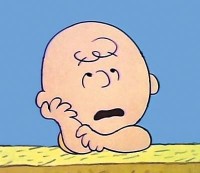Finally, Someone Explains What Art Basel Was All About!

You know, I read all the reviews of Art Basel Miami, and I didn’t link to any of them, because they bored me. Finally, late-breaking, here is an account of the art fair that I actually enjoyed reading! “It all began when some friends took me to a party where I ultimately met a very well-known German artist. Aside from the fact he was three times my age-and weight-there was something very seductive about being force-fed bumps, champagne, and chocolate. The German artist asked me if I wanted to come to his hotel room for a nightcap, and even though my vision was blurred-in this case that was a good thing-it became increasingly clear I didn’t have a choice. Once I finished raiding his mini-bar, it was apparent that there was an expectation of sex in return for his generosity throughout the evening. Fortunately for me, we had the same turn-on: watching me jerk-off. I made him watch from the other side of the room because it’s hard to concentrate when someone’s talking dirty to you in German.” GOD BLESS.
Stuck With Joe
No matter how exciting the idea might be (although, really, doesn’t anything Michael Moore fulminates against make you sort of, for a minute, root for it?), Connecticut voters cannot recall their miserable prick of a senator, Joe Lieberman. The best we can do is hope for some hysterical sex scandal that drives him from office.
Sanford Stays
While he still faces the possibility of being censured, divorce-bound South Carolina Governor Mark Sanford will be able to hike into history without being impeached.
Real America, with Abe Sauer: Garrison Keillor Will Die
by Abe Sauer

Garrison Keillor will die. That’s an honest-to-God truth. And while that blunt statement on the surface is just factual, what it represents for many, including myself, is difficult to comprehend or even contemplate: that Garrison Keillor will die.
Keillor still helms Prairie Home Companion each week and shills his latest book, amongst other projects and appearances. It’s an incredible schedule for a man whose stroke earlier this year was just the latest bout with a earthly vessel resolved to doing him in. And while he seems his normal, measured self, it’s not beyond the realm of possibility that this radio season is his last.
Based in Minnesota and heard by nearly four million listeners each week, according to American Public Media, Prairie Home Companion first aired in 1974 to an audience of 12. A variety show in the mold of old regional broadcasts, there is really not anything like it left on radio. Its content maintains a regional flair that has been lost; while America’s talent for global homogenization is both celebrated and bemoaned, its even greater ability to do so inside its own borders makes American sameness near-complete. Americans have even forgotten to lament that everywhere seems like everywhere else. As Keillor once said, “People will miss that it once meant something to be Southern or Midwestern. It doesn’t mean much now, except for the climate. The question, ‘Where are you from?’ doesn’t lead to anything odd or interesting. They live somewhere near a Gap store, and what else do you need to know.”
Prairie Home Companion is just as local as Keillor, which is why, after he “resumed the life of a shy person,” the New York-based version of the show, “American Radio Company of the Air,” was unsuccessful. In fact, part of what makes the show so appealing is that it doesn’t care about appealing to a wider audience.

Prairie Home Companion is also often subversive in a way many “liberal” shows are not. It lampoons both politics and religion, without grossly insulting personal affiliations to either. It’s often characterized as a dumb show for hicks by those who have never heard an installment of The Professional Organization of English Majors, a running gag that makes The Daily Show look like it works in finger paints. And, it is probably the only Democratic-leaning show for white people where the word “faith” isn’t used as a punch-line or a pander. As an alternative to how most shows work around God because it’s “difficult,” Prairie Home works God in while very much acknowledging that it is “difficult.”
For those that profess to be offended by the bulk of his work-that seems, to me, irrational and misplaced. I understand the outrage over his statements about gay marriage (he apologized, but it was still, even tongue-in-cheek, an unwise essay). Other than that, he is largely a fiction writer, variety show host and (worsening) singer. Not your cup of tea? Well, okay.

I am almost exactly as old as A Prairie Home Companion. While there is no meaning in this bit of trivia, I have, over the years chosen to find some. Along with others who grew up in Wisconsin or Minnesota or Iowa and the Dakotas, the show was Saturday noise. Gospel and Keillor’s voice sound-racking the evening… even when we weren’t listening all that close. But often we were listening that close. I was. And it helped that I grew up in a place just as small and sincere as Lake Wobegon.
Over the last decade I lived and traveled a great deal, spending most of my youth in Beijing and Burma, New York and Narita, Haiti and Hungary, some places for weeks, some for years. And the one constant was Garrison’s voice. My expat friends got excited over packages of VHS recordings of Friends and ER; my secret glee was bootleg Prairie Home Companion recordings from my brother.
Every Keillor fan has his or her favorite monologue. I can recite more than a dozen, verbatim (especially the Book of Guys story “God of Canton,” the only tape to survive a tragic Beijing apartment flood). But if I had to (at this moment) make just three recommendations, I would select “Hog Slaughter” and “The Royal Family” from the Fall section and “Storm Home” from the Winter section of the four-seasoned News from Lake Wobegon collection. The first two for their sense of realism, loss, hope and Garrison’s voice and the latter for its calm seasonal charm and childishness. (But it kills me to pick.)
Listening to Garrison’s voice is what lulled me to sleep on more nights than I can remember. It continues to. It reminded me, and still does, that home was still an actual place to which I could go back, even if the years had faded the memories too pale to any longer proffer proper nostalgia. Certainly Keillor’s works will survive him. And yes, a lot of that work is getting to be a little repetitive, even for hard-core fans. But that voice, we will never have again.

To truly be a fan of Garrison is to be a fan of sadness, sweet sadness, and loss. But it is also to be a fan of humanity. Garrison’s youths are naïve; their perspectives are not seas but puddles, in which they are rudderless anyway. Adults are sinners but trying. Places are better in memory and imagination than in reality. And people are both more fragile and more robust than expected. To be familiar with Garrison is also to know of death. Death is an authentic Midwest small-town going-on. The weather is first. But death is second. To spend time with the kind of elderly that inhabit the Wobegon stories is to spend time hearing about death. Did you hear who died? He died too early. How did he die? Who drove from far away to the service? What did they serve? Hushed voices speak the details of the local dead as if not to offend them.
Anyone who listens regularly to Prairie Home, and especially those familiar with Keillor’s non-radio works, (such as “The Book of Guys”), know the author is well aware of everything’s impermanence, especially his own. The Altman film of Prairie Home Companion, written by Keillor, is centered on mortality. One exchange has Keillor looking into the camera and saying, “I will die.” In July’s PBS documentary The Man on the Radio in the Red Shoes, Keillor says, “You die, there’s a sort of decent grief, a few people really do suffer from your absence but the impact on the greater world is not that big. You do not leave a big hole. They dig a hole and they put you in it.”
And it is exactly this humor with a shadow, these pithy takes on death (especially his own), that leave us chuckling at the abstract rather than quietly pondering the sincere. He will die. (As will we all.) And yet, just how will we react? I’m not sure.

I have seen three shows live. Prairie Home Companion is finishing its annual December run at New York’s Town Hall Theatre this weekend (perhaps there are Craigslist tickets?). But starting in January 2010, the show will be traveling to a range of venues from San Francisco to Tucson to Detroit, Seattle, Newark, Cuyahoga Falls, Highland Park and Nashville, amongst others. I simply cannot recommend the experience enough, especially in consideration that the opportunity, obviously, becomes ever more limited.
Abe Sauer is a fan.
Why Didn't You Tell Me About Chooching?

I can’t recall the whole story, because I don’t have the issue with me, but there’s a story in the latest Private Eye about something that the Darlington, England, council did recently, I’m not precise on the details-God, this is like the worst blog post ever-but it involved the embarrassing use of the word “chooching,” which is completely new to me. Apparently, it means to masturbate while crying. Am I like the last person in the world to have learned this? And, if so, why? Because I’m familiar as hell with the act, I just had no idea they had given a name to it. Anyway, for your files.
Goodbye Awl Offices
Free Wi-Fi in McDonald’s starts next month! Soon the only exercise we will get will involve walking up to the counter for more fries! It’s been a productive few millennia, human beings, make sure you grab yourselves an apple pie on the way out.
Be Prepared! Make Your New Year's Resolution Now
Every year I screw this up bad. (Except the year that I resolved to “be less nice,” in emulation of a friend who successfully went with that one the year prior. That WORKS.) So I started brainstorming about my New Year’s resolution last week, and I finally came up with a winner. I hereby resolve: to record an album’s worth of cover versions of the very fine work of one of the world’s best bands, if not the world’s very best band, Slow Children. This resolution has it all: personal satisfaction, a chance to gain some new technical skills and also the benefit of not being exactly what everyone else is doing. Not quite, at least. I am so pleased with myself that I may just sit at my desk the rest of the day and contemplate how awesome 2010 will be.
New Zealand Church Billboard Provokes Uncomfortable Questions (Like, "Is God Good At Cunnilingus?"
New Zealand Church Billboard Provokes Uncomfortable Questions (Like, “Is God Good At Cunnilingus?” “Does He Like It Rough?” “Does He Ask For A Finger Up His Ass?” Etc.)

Progressive Christianity doesn’t overlook Jesus’ life and rush to his death. Rather it sees the radical hospitality he offered to the poor, the despised, women, children, and the sick, and says: ‘this is the essence of God’. His death was a consequence of the offensive nature of that hospitality and his resurrection a symbolic vindication. The Christmas billboard outside St Matthew-in-the-City lampoons literalism and invites people to think again about what a miracle is. Is the miracle a male God sending forth his divine sperm, or is the miracle that God is and always has been among the poor?
I don’t know the answer to this question, but I guess I do appreciate the sentiment. [Via]
Things Could Always Be Worse (Also: "SUSPECT"?)

“A Brazilian toddler has up to 50 sewing needles inside him, which doctors suspect were deliberately inserted.”
Here's Something New To Get Upset About!
Are you aware of the “coastie” controversy that is currently rocking Madison, WI? Apparently it has something to do with this terrible song, which some have accused of being anti-Semitic in its depiction of the titular “coastie,” a “privileged East or West Coast transplant, often a woman of a certain look: black tights, Ugg boots, oversize sunglasses and sporting a Starbucks cup.” Milwaukee’s Journal Sentinel is on the case.
“Most of the Jewish students interviewed for this story said they find the tune and video ‘What’s a Coastie’ by UW-Madison undergrads Cliff Grefe and Quincy Harrison — who are not Jewish — harmless and funny.” Wait for it, though: “But some are offended.” It seems there are many historical issues concerning prejudice and disdain for those from the nation’s shores, which seems odd given that we all know the only victims of regional animosity in this country are those who hail from the middle and southern parts. Anyway, during this holiday season, perhaps we could all join hands and at the very least agree: The song really sucks, no matter where you’re from. [Via]
